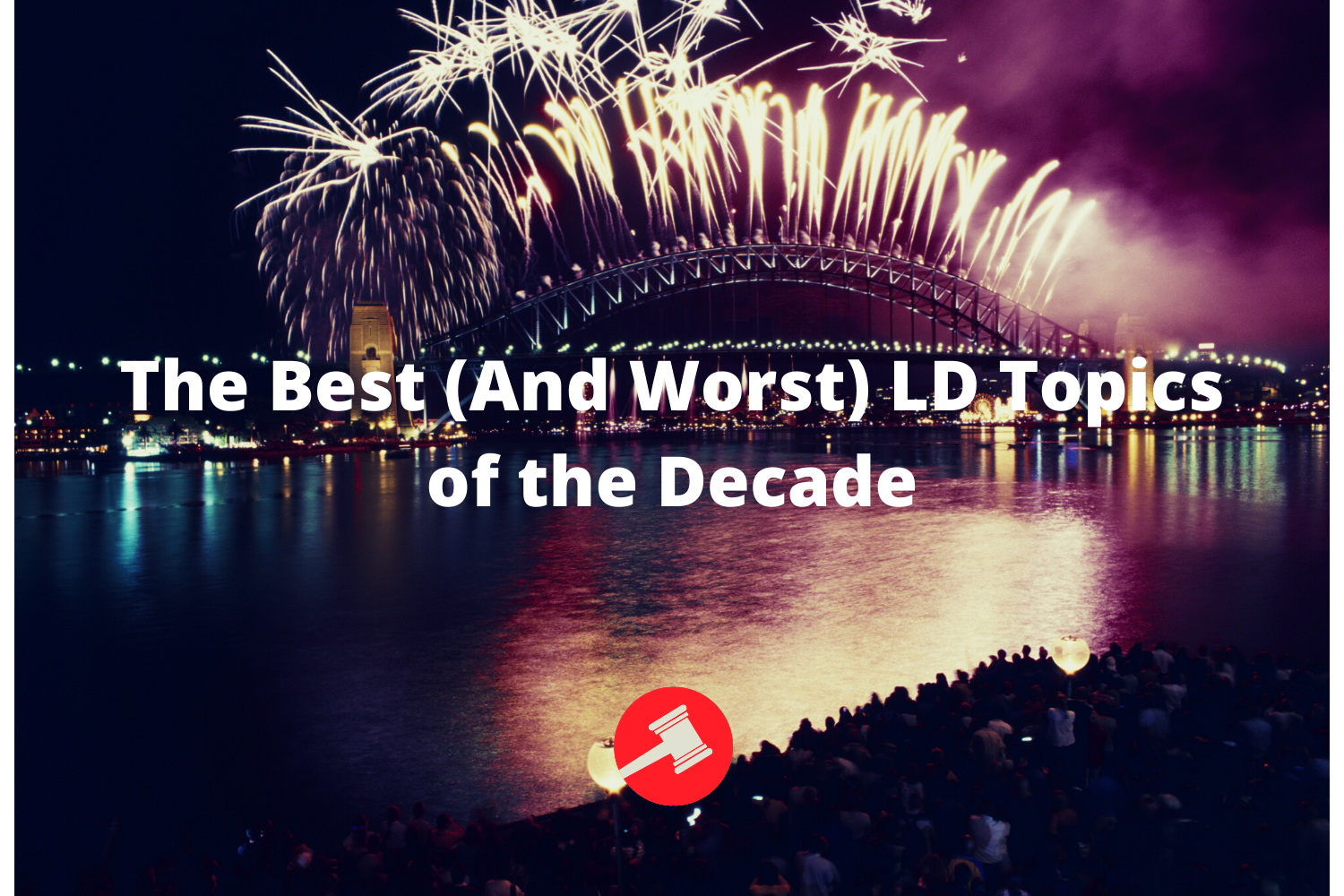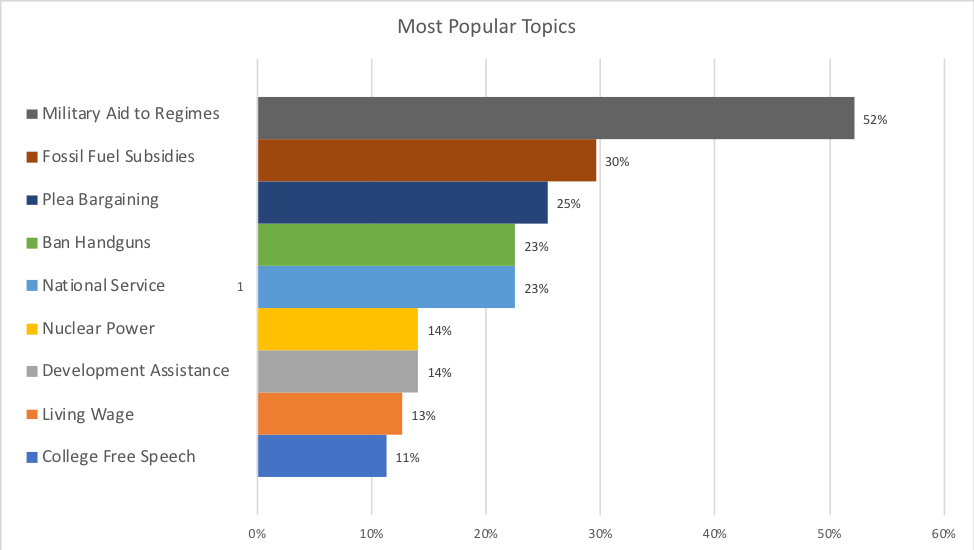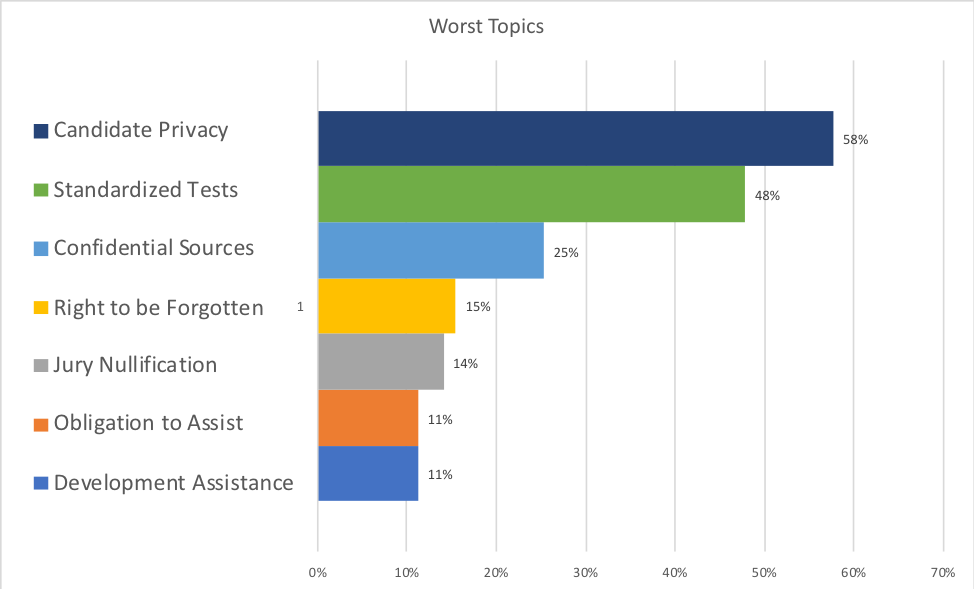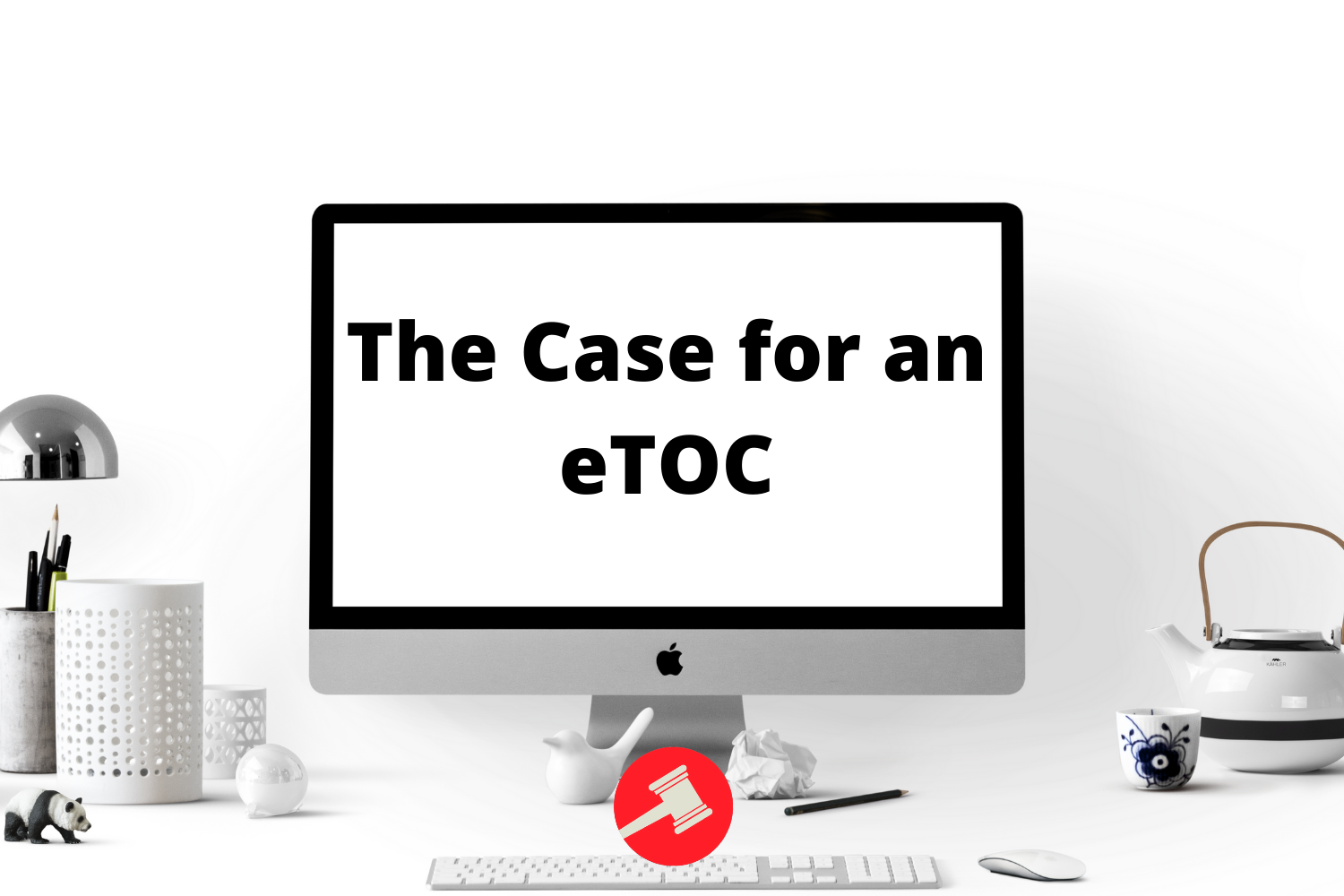The Best (And Worst) LD Topics of the Decade

The Best (and Worst) Topics of the Decade
As the 2010’s come to a close, we at Premier debate wanted to reflect on the past decade in Lincoln-Douglas debate. The good topics, the bad topics, the almost-good-but-killed-by-the-wording topics. Over the last week and a half, we put out a survey and invited the community to vote on their favorite and least favorite topics.
Introduction
The survey asked each participant to choose up to three “Best” and three “Worst” topics from a list of all the regular season topics each year this decade.[1] It also asked the participant to disclose which year they began participating in debate. This is where the first notable finding was of the 71 people who answered the survey, 70% began participating in 2015 or later. This hefty skew towards the latter half of the decade should be taken into consideration as you look at which topics did (and did not) get a lot of responses. We also asked if participants were primarily coaches, competitors or both during this decade, and over 70% were primarily competitors.
Best Topics
Respondents were asked to select the “Best 3 Topics” of their choice. A graph including all 30 options would’ve been incredibly messy, so I only included those which was selected by at least 10% of people.

Overall, the most popular topic by far was Jan/Feb 2019, with over 50% of respondents listing it as among their top three choices. The results also have a heavy skew towards the second half of the decade. Other than the living wage, every topic on this list was 2016 or later. I suspect this is due to the heavy skew of the survey population, but it is also possible that topics are simply improving. One honorable mention that almost made this was universal healthcare. An excellent topic with lots of ground that I suspect the community would be happy to see make a comeback and would be well-reviewed if it did.
A final point of interest I noticed was the fairly un-even calendar spread of these topics. Among the nine topics that broke 10% of the vote, we had two Nov/Dec, two Sept/Oct, but five Jan/Feb topics. Are Jan/Feb topics just better? Probably not, but I think the extra time that Jan/Feb is debated might improve the quality of the debates and help resolve issues.
Worst Topics
The survey also asked participants to rank their “Worst 3” topics from the same list. Similar to the previous section, I pulled out all the topics that received at least 10% of the vote.

Once again there was a clear front-runner, with the right to know / candidate privacy topic from 2018 gaining 58% of the vote. Close behind it though was standardized testing from earlier this year. After that we see a pretty clear drop off to other topics though.
Once again, we see a pretty clear un-even calendar balance with four out of seven topics being Nov/Dec topics. I suspect this is the converse of the Jan/Feb phenomenon that I outlined earlier. Nov/Dec topics are debated for a much shorter time than other topics. In fact, lots of tournaments in December (Blake, CPS, Strake) use the Jan/Feb topic instead! This leads to broad topics not having enough time to develop an effective and clear meta and can cause debates to be messier.
Another honorable (0r dis-honorable?) mention was the Jan/Feb 2012 topic, “It is morally permissible for victims to use deadly force as a deliberate response to repeated domestic violence” which received 9.9% of the vote, just one short of making the graph. This topic is obviously horrible and had an obvious aff skew. In fact, according to Jacob Nails, the affirmative won 75% of elim rounds at TOC that year…. This topic seems uniquely bad from both a moral and fairness standpoint, and I suspect if more people had debated it, then it would’ve received more votes for worst topic.
Other Interesting Notes
Development assistance was the only topic to make both lists. This intrigues me as I wonder if the same attributes that made some people enjoy that topic (i.e. lots of plans) made others dislike it. Another interesting finding here was that the college free speech topic made the best topics list. This is obviously anecdotal, but my memory of debating that topic and its release was that people were very opposed to it, largely due to its wording and seemingly niche impact scenarios. I wonder if the topic grew on people as they debated it and it faded into hindsight, or if my anecdotal memories never reflected the views of the community in the first place.
[1] Regular season was defined as Sept/Oct, Nov/Dec, and Jan/Feb. March/April and Nationals were excluded due to concerns that fewer schools participated in them and it might skew the results.


